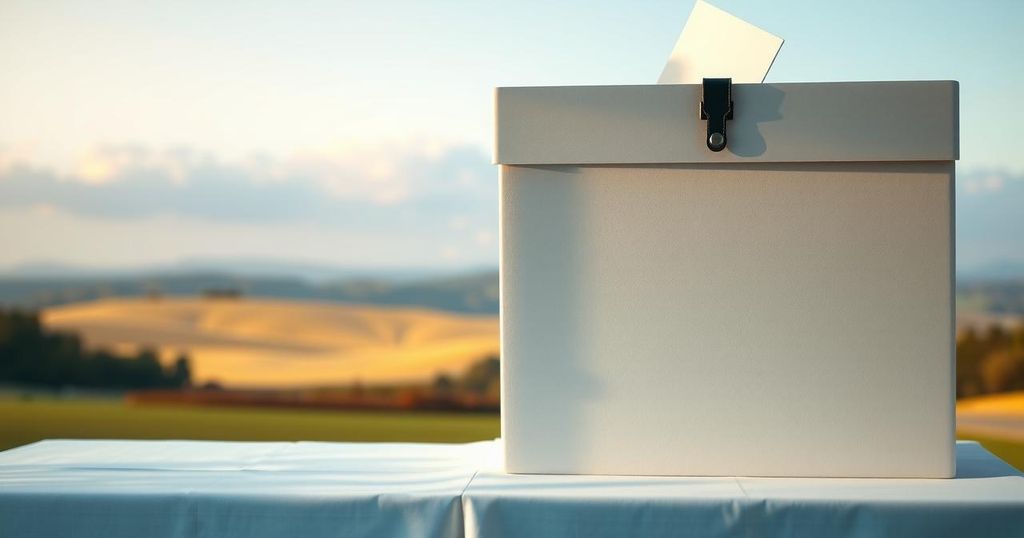In Ecuador’s general election, incumbent President Daniel Noboa and challenger Luisa González vie for leadership amid rising crime and socio-economic challenges. Noboa’s administration has faced crises requiring tough security measures, while González promises to address the drug trade robustly. The election outcome will dictate the future course of governance and security policies in the nation.
Polling stations have closed in Ecuador’s general election where 16 candidates are contesting for the presidency, including current President Daniel Noboa and his chief opponent Luisa González. To secure outright victory in the first round, a candidate must garner over 50% of the votes or at least 40% with a 10-point lead over the nearest candidate. Failing this, a runoff will occur between the top two candidates, tentatively scheduled for April 13.
The election outcome will determine whether Ecuador continues with President Noboa’s stringent crime policies or opts for a different approach under González. Noboa, who assumed office during the 2023 snap election following Guillermo Lasso’s term, has dealt with various crises during his presidency. His administration declared multiple states of emergency and deployed military forces to address gang violence, additionally commencing the construction of a high-security prison after a notorious gang leader escaped custody.
Luisa González, Noboa’s primary challenger and previous runner-up in the last election, aligns herself with former leftist President Rafael Correa, a significant force in Ecuadorian politics. Running on the slogan “Revive Ecuador,” she has promised to combat the drug trade with the same intensity as Noboa. The incoming government will face considerable challenges, including security, economic stability, an energy crisis, and international relations.
According to Santiago Basabe, an analyst at Universidad San Francisco de Quito, “Security is the biggest problem the government has had, but in a country with huge social inequalities like Ecuador, I believe that among the priorities of the less advantaged sectors are, in addition to security, health and education.”
Ecuador is currently experiencing political tension characterized by severe crime rates and increasing violence, prompting urgent governmental responses. The nation’s presidential election reflects divided sentiments regarding public safety and social policies. Both major candidates present contrasting visions for the country’s future, especially in relation to crime and social inequality, underlining the urgency to address these pressing issues.
The results of Ecuador’s general election will significantly impact the country’s direction with respect to crime, security, and social policies. Either President Noboa will continue his militarized approach against crime, or Luisa González will introduce her policies centered around social equity. The election is pivotal in determining how the next government addresses the profound challenges facing Ecuador.
Original Source: www.channel3000.com






